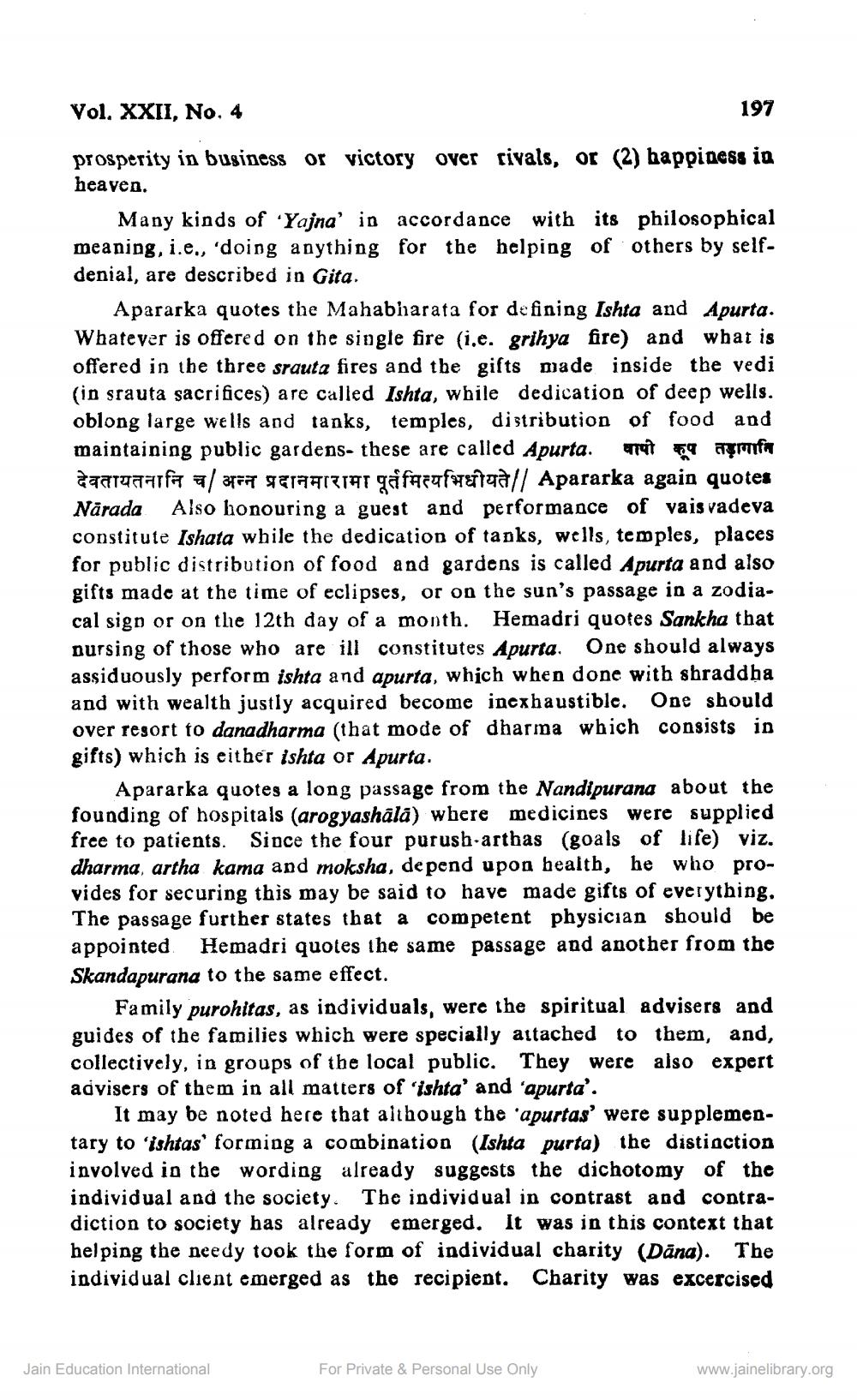________________
Vol. XXII, No. 4
197
prosperity in business or victory over rivals, or (2) happiness in heaven.
Many kinds of Yajna in accordance with its philosophical meaning, i.e., 'doing anything for the helping of others by selfdenial, are described in Gita.
Apararka quotes the Mahabharata for defining Ishta and Apurta. Whatever is offered on the single fire (i.e. grihya fire) and what is offered in the three srauta fires and the gifts made inside the vedi (in srauta sacrifices) are called Ishta, while dedication of deep wells. oblong large wells and tanks, temples, distribution of food and maintaining public gardens- these are called Apurta. at 9 amha agatuaarfa a/ 277 919191 gafacufatga || Apararka again quotes Närada Also honouring a guest and performance of vais vadeva constitute Ishata while the dedication of tanks, wells, temples, places for public distribution of food and gardens is called Apurta and also gifts made at the time of eclipses, or on the sun's passage in a zodiacal sign or on the 12th day of a month. Hemadri quotes Sankha that nursing of those who are ill constitutes Apurta. One should always assiduously perform ishta and apurta, which when done with shraddha and with wealth justly acquired become inexhaustible. One should over resort to danadharma (that mode of dharma which consists in gifts) which is either ishta or Apurta.
Apararka quotes a long passage from the Nandipurana about the founding of hospitals (arogyashala) where medicines were supplied free to patients. Since the four purush-arthas (goals of life) viz. dharma, artha kama and moksha, depend upon health, he who provides for securing this may be said to have made gifts of everything, The passage further states that a competent physician should be appointed Hemadri quotes the same passage and another from the Skandapurana to the same effect.
Family purohitas, as individuals, were the spiritual advisers and guides of the families which were specially attached to them, and, collectively, in groups of the local public. They were also expert advisers of them in all matters of 'ishta' and 'apurta'.
It may be noted here that although the 'apurtas' were supplementary to 'ishtas' forming a combination (Ishta purta) the distinction involved in the wording already suggests the dichotomy of the individual and the society. The individual in contrast and contradiction to society has already emerged. It was in this context that helping the needy took the form of individual charity (Dāna). The individual client emerged as the recipient. Charity was excercised
Jain Education International
For Private & Personal Use Only
www.jainelibrary.org




